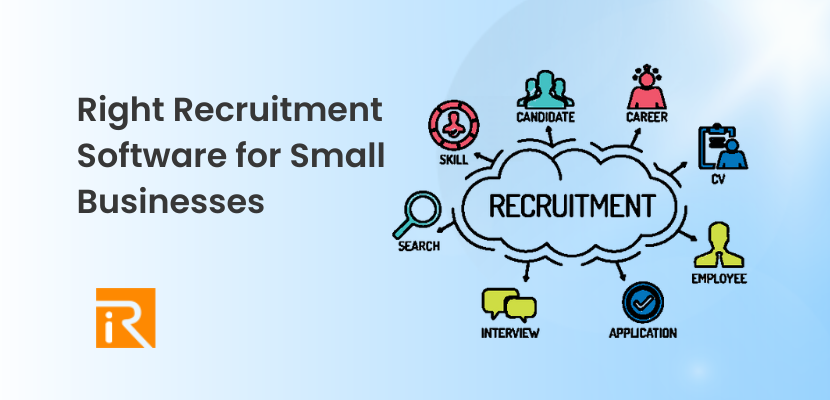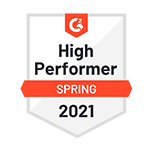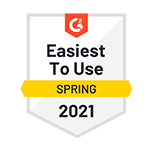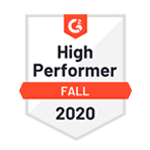
- The Challenge of Small Business Recruitment
- What is Recruitment Software?
- Types of Recruitment Software
- How It Works
- The Benefits of Recruitment Software for Small Businesses
- Features to Look for in Recruitment Software for Small Businesses
- How to Choose the Right Recruitment Software for Your Small Business
- Conclusion
-
FAQs
- What is the cost of recruitment software for small businesses?
- Can recruitment software be customized to meet specific needs?
- How does recruitment software help in screening candidates?
- Is recruitment software easy to use for non-technical users?
- Can recruitment software integrate with other HR tools?
Recruiting the right talent is crucial for any business, but it can be particularly challenging for small businesses. The recruitment process can be time-consuming, expensive, and resource-intensive. However, with the right recruitment software, small businesses can simplify the recruitment process, save time and money, and find the best candidates for the job.
This article explores the benefits and features of recruitment software for small businesses and how it can transform your recruitment process.
The Challenge of Small Business Recruitment
Recruiting new employees for a small business can be a significant challenge. Small businesses often have limited resources, which can make it difficult to attract and hire top talent. In addition, the costs associated with recruitment can be high, and the process can be time-consuming. Here are some additional details on each of these challenges:
Limited Resources
Small businesses often operate with limited financial resources, making it challenging to invest in recruiting efforts. Traditional recruitment methods such as advertising on job boards or working with recruiters can be expensive. Moreover, small businesses may not have the resources to offer the same level of benefits and compensation as larger corporations. This can make it harder to compete with larger companies for top talent.
High Cost
The cost of recruiting can be high for small businesses. They may need to invest in advertising, recruitment agencies, and even relocation expenses to attract the best candidates. Furthermore, small businesses may not have a dedicated HR department, which can lead to additional expenses such as employee training or outsourcing recruitment functions.
Time-Consuming
Recruiting can be a time-consuming process, particularly for small businesses with limited staff. The process can take weeks or even months, from advertising job openings to screening candidates, conducting interviews, and negotiating offers. This can be a significant distraction for small business owners, taking their attention away from other critical business activities.
What is Recruitment Software?
Recruitment software, also known as applicant tracking systems (ATS), is a tool used by organizations to manage and streamline their hiring processes. It enables recruiters to automate and manage tasks such as posting job openings, screening resumes, scheduling interviews, and tracking candidate progress throughout the hiring process.
Types of Recruitment Software
Standalone ATS
This type of software is solely focused on recruiting and typically includes features such as resume parsing, job posting, interview scheduling, and candidate management.
Integrated HR Suite
These systems include features beyond recruitment, such as onboarding, payroll, and employee management.
How It Works
Recruitment software typically starts with creating a job posting and publishing it to various job boards, career sites, and social media platforms. Candidates then apply for the position by submitting their resumes, which are automatically screened and ranked based on keywords and qualifications relevant to the job.
Recruiters can then review resumes and applications, schedule interviews, and communicate with candidates through the software. The system can also track the progress of each candidate through the hiring process, from application to offer, and store all candidate data in one centralized database for future reference.
Some recruitment software also uses artificial intelligence (AI) to improve the recruiting process. For example, AI can analyze resumes and identify top candidates based on their experience, skills, and other qualifications. This can save recruiters time and increase the efficiency of the hiring process.
The Benefits of Recruitment Software for Small Businesses
Here are some benefits that small businesses can enjoy by using recruitment software:
Time-Saving
Recruitment software can automate many time-consuming tasks, such as resume screening, scheduling interviews, and sending follow-up emails. This frees up recruiters’ time, allowing them to focus on other important tasks such as candidate engagement and onboarding.
Cost-Effective
Small businesses often have limited budgets for recruitment, and using recruitment software can be a cost-effective solution. It eliminates the need for expensive job boards or recruitment agencies and can save money by reducing time-to-hire and minimizing the risk of making a bad hire.
Improved Candidate Quality
Recruitment software uses algorithms to filter out unqualified candidates and identify the best-fit candidates for the role. This ensures that only the most relevant and qualified candidates are considered for the position, resulting in improved candidate quality.
Enhanced Candidate Experience
Recruitment software can improve the candidate experience by providing an easy-to-use and transparent hiring process. Candidates can apply for positions online, receive timely updates on their application status, and communicate with recruiters directly through the system. This creates a positive impression of the company and helps attract top talent.
Better Hiring Decisions
Recruitment software provides recruiters with access to data and analytics that can help them make better hiring decisions. For example, they can analyze recruitment metrics such as time-to-hire, cost-per-hire, and candidate quality to identify areas for improvement and make data-driven decisions.
Scalability
Recruitment software can scale with the growth of the business, allowing small businesses to expand their hiring efforts without increasing the workload. The software can handle larger volumes of applications and provide the necessary tools for managing multiple job openings, interview scheduling, and candidate tracking.
Features to Look for in Recruitment Software for Small Businesses
Here are some key features to look for in recruitment software for small businesses:
Applicant Tracking System (ATS)
An ATS is the core feature of recruitment software that allows small businesses to track and manage job applications from start to finish. It should be able to parse resumes, filter out unqualified candidates, and rank candidates based on their qualifications and experience. This feature helps recruiters to manage a large volume of applications and identify the most suitable candidates for the job.
Candidate Database
A candidate database is a centralized location to store all candidate information, including resumes, applications, interview notes, and communication history. This feature enables recruiters to easily access and review candidate information, even for past positions, and helps them build a pool of qualified candidates for future positions.
Job Posting and Distribution
Recruitment software should allow small businesses to easily post job openings to multiple job boards and social media platforms. It should also provide features for managing job postings, such as editing and deleting posts, and should have the ability to track the performance of job postings.
Interview Scheduling and Management
Recruitment software should have features for scheduling and managing interviews, including automated scheduling, interview reminders, and interview feedback collection. This feature saves time and streamlines the interview process for both recruiters and candidates.
Reporting and Analytics
Recruitment software should have the ability to generate reports and analytics on recruitment metrics such as time-to-hire, cost-per-hire, and candidate quality. This feature helps small businesses identify areas for improvement and make data-driven decisions in their recruitment process.
How to Choose the Right Recruitment Software for Your Small Business
Choosing the right recruitment software for your small business is an important decision that can impact the efficiency and effectiveness of your recruitment process. Here are some steps to follow when selecting the right recruitment software:
Identify Your Needs
The first step in choosing the right recruitment software is to identify your business’s specific recruitment needs. Consider the size of your company, the number of open positions you have, the volume of applications you receive, and the features you require in a software system.
Research and Compare Options
Once you have identified your needs, research and compare different recruitment software options. Look for software that has the features you need, such as applicant tracking, interview scheduling, and reporting capabilities. Consider the pricing and whether it fits within your budget.
Consider Integration
It’s important to consider whether the recruitment software integrates with other HR systems that you use. Integration can help streamline your recruitment process and eliminate the need for manual data entry.
Assess User-Friendliness
The recruitment software you choose should be easy to use for both recruiters and candidates. Therefore, look for software that has an intuitive interface and clear instructions. Also, consider whether the software provides support and training to ensure that users can use it effectively.
Look for Customization Options
Recruitment software should be customizable to fit your specific recruitment needs. So, look for software that allows you to customize workflows, templates, and reporting options to match your business’s unique requirements.
Check Customer Support
It’s important to consider the level of customer support provided by the recruitment software provider. Therefore, look for software providers that offer comprehensive support options, such as email, phone, and live chat, as well as training and resources to help you get the most out of the software.
Conclusion
Overall, recruitment software can be a valuable investment for small businesses looking to streamline their recruitment process, improve the candidate experience, and make better hiring decisions. In conclusion, by simplifying the recruitment process, small businesses can focus on finding the right candidates for the job and growing their business.
FAQs
What is the cost of recruitment software for small businesses?
The cost of recruitment software for small businesses can vary depending on the features and capabilities of the software. Some software providers offer free plans, while others charge a monthly or annual subscription fee. So, small businesses should consider their budget and specific recruitment needs when selecting a software provider.
Can recruitment software be customized to meet specific needs?
Yes, many recruitment software providers offer customization options to meet the specific needs of small businesses. Customization options can include tailored workflows, templates, and reporting options. Therefore, customization helps small businesses to optimize their recruitment process and ensure that the software meets their unique requirements.
How does recruitment software help in screening candidates?
Recruitment software uses algorithms and artificial intelligence to scan resumes and job applications for specific keywords, skills, and qualifications. This helps recruiters to screen candidates quickly and identify the most qualified candidates for the job. Some recruitment software also includes pre-screening questions and assessments to further filter out unqualified candidates.
Is recruitment software easy to use for non-technical users?
Yes, recruitment software is designed to be user-friendly and easy to use for non-technical users. Most recruitment software providers offer training and resources to help users get up to speed on the software’s features and functionality. Additionally, many recruitment software systems have intuitive interfaces and clear instructions to make the software accessible to all users.
Can recruitment software integrate with other HR tools?
Yes, many recruitment software providers offer integration with other HR tools such as applicant tracking systems, onboarding software, and payroll software. Integration allows small businesses to streamline their HR processes and eliminate manual data entry. It’s important to consider integration options when selecting a recruitment software provider to ensure that the software integrates with the other HR tools that you use.


























